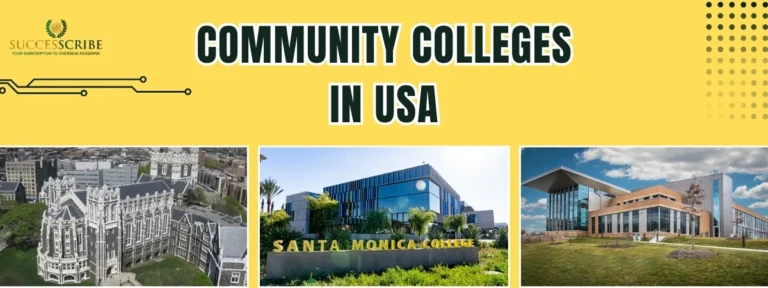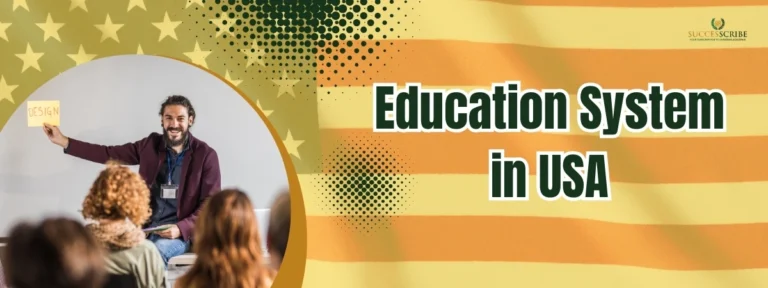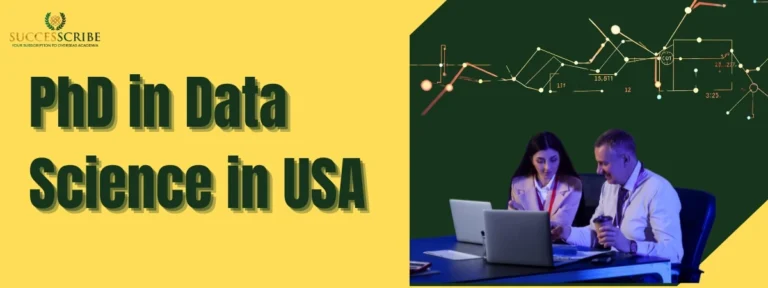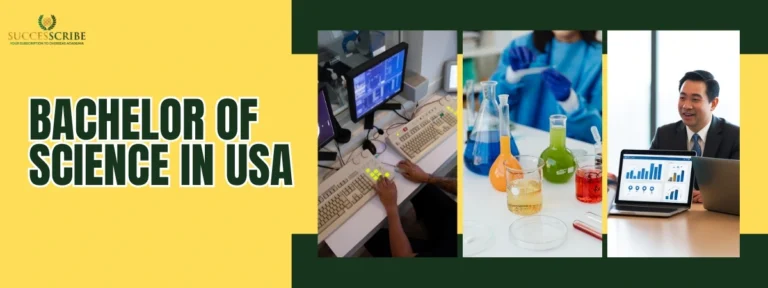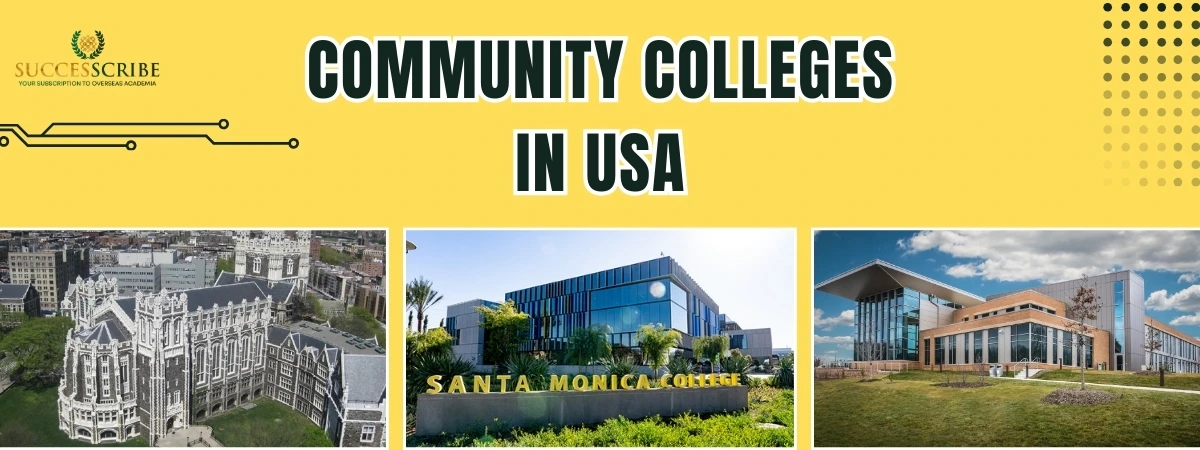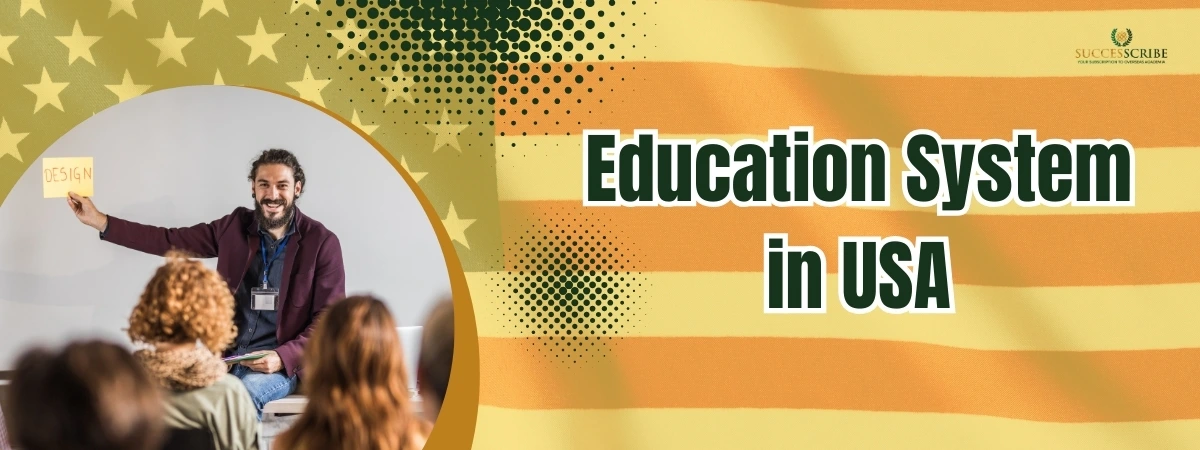The Karlsruhe Institute of Technology (KIT) is a leading public research university in Karlsruhe, Germany. It was formed in 2009 through the merger of the University of Karlsruhe (founded 1825) and the Karlsruhe Research Center, with history dating back to the early 19th century. As “The Research University in the Helmholtz Association,” KIT has grown into one of Europe’s largest and most prestigious institutions, focused on tackling major societal challenges through research and education in energy, mobility, and information technologies.
KIT enrolls approximately 25,000 students, with around 5,200 international students in winter semester 2024/25, and employs about 9,300 staff (6,000 in science/research)
Ranking & Reputation of Karlsruhe Institute of Technology (KIT)
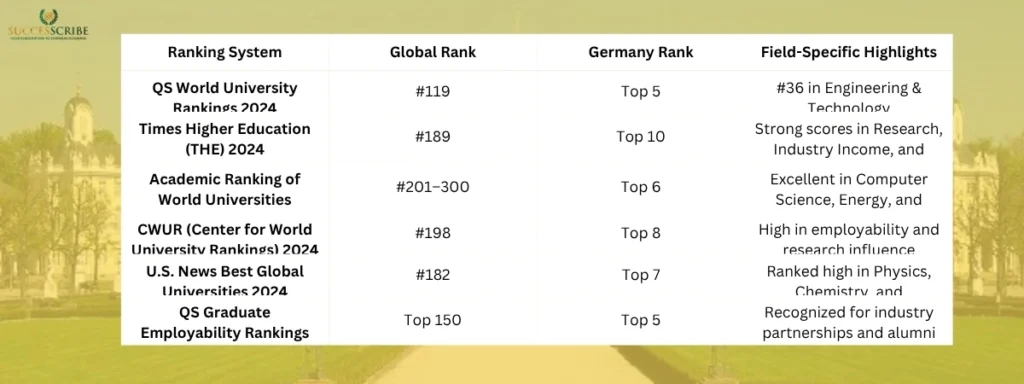
Karlsruhe Institute of Technology (KIT) enjoys a distinguished reputation as one of Europe’s foremost institutions for science, engineering, and technology. As a proud member of the TU9 alliance, Germany’s prestigious group of top technical universities, KIT combines cutting-edge research with a deep-rooted academic tradition that dates back to 1825.
Global University Rankings
- QS World University Rankings 2025: KIT has made significant progress, securing an impressive #102 globally, marking a consistent rise from #141 in 2023 and #119 in 2024. This upward trend reflects its increasing influence and academic impact on the global stage.
- QS Europe Ranking 2024: Ranked among the Top 40 universities in Europe, KIT stands out as a powerhouse for innovation and engineering in the heart of Europe.
- Academic Ranking of World Universities (ARWU/Shanghai Ranking): KIT is placed within the 201–300 global bracket, maintaining its strong position among research-intensive institutions worldwide.
- Times Higher Education (THE) World University Ranking: While THE places KIT in the 251–300 range globally, it consistently highlights KIT’s excellence in Research Output, Industry Income, and International Outlook.
Subject-Specific Excellence
KIT shines brightest in STEM (Science, Technology, Engineering, and Mathematics) disciplines, consistently ranking among the Top 50 globally in several key areas:
| Subject | Global Rank | Germany Rank |
| Environmental Sciences | 35 | #1 |
| Chemical Engineering | 21 | #1 |
| Petroleum Engineering | 29 | #1 |
| Materials Science | 29 | Top 3 |
| Mechanical Engineering | 37 | Top 3 |
| Physics & Astronomy | 42 | Top 3 |
| Chemistry | 47 | Top 5 |
| Civil & Structural Engineering | 51–100 | Top 5 |
This level of subject-specific performance places KIT shoulder to shoulder with elite institutions like ETH Zurich, TU Munich, and RWTH Aachen.
National Prestige
In Germany, KIT enjoys a stellar academic and industrial reputation:
- Consistently ranked among the Top 5 Technical Universities in the country.
- Known as Germany’s leader in interdisciplinary energy research, climate innovation, and AI & data science.
- Strong ties with global giants like Siemens, Bosch, Mercedes-Benz, SAP, and BMW bolster its recognition in the industry.
Suggested Post: RWTH Aachen University QS Ranking
Acceptance Rate & Admission Requirements at KIT
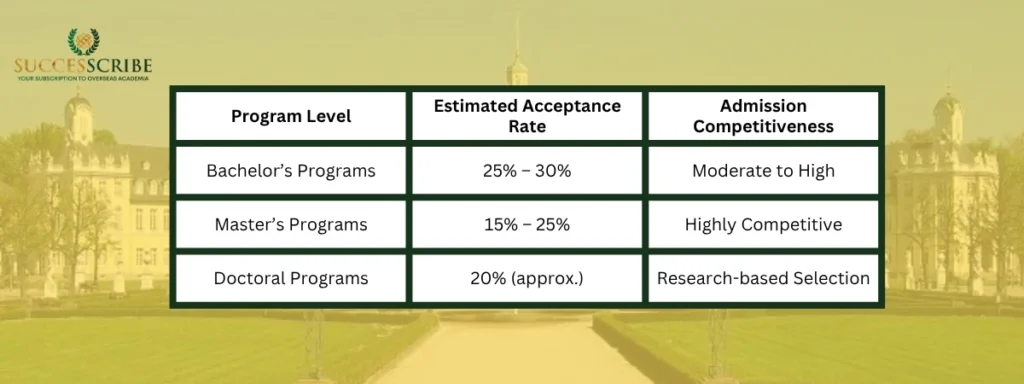
The Karlsruhe Institute of Technology (KIT) is known not only for its academic excellence but also for its selective admissions process, which ensures that only the most motivated and academically prepared students join its prestigious programs. With a reputation for rigorous education in STEM and interdisciplinary fields, getting into KIT is highly competitive, especially for international applicants.
Acceptance Rate: How Competitive Is KIT?
KIT maintains a selective acceptance rate, with varying levels of competitiveness depending on the program and applicant pool.
| Program Level | Estimated Acceptance Rate | Admission Competitiveness |
| Bachelor’s Programs | 25% – 30% | Moderate to High |
| Master’s Programs | 15% – 25% | Highly Competitive |
| Doctoral Programs | 20% (approx.) | Research-based Selection |
The acceptance rate for international students applying to English-taught master’s programs is typically lower due to limited seats and high global demand.
General Admission Requirements
- For Bachelor’s Degree Programs:
- High School Completion Certificate equivalent to the German Abitur (e.g., CBSE/ISC for Indian students or IB Diploma).
- APS Certificate for applicants from India, Vietnam, and China.
- Proof of German language proficiency – usually DSH-2, TestDaF 4×4, or Goethe-Zertifikat C1 (for German-taught programs).
- For English-taught bachelor’s programs (like Mechanical Engineering International via Carl Benz School): IELTS (minimum 6.5) or TOEFL iBT (minimum 90).
- SAT scores are not mandatory but may strengthen an application.
- For Master’s Degree Programs:
- A recognized undergraduate degree (minimum 3–4 years) relevant to the intended master’s course.
- Strong academic record—typically GPA 2.5 or better on German scale (equivalent to 65–75%+).
For English-taught programs:
- IELTS 6.5, TOEFL iBT 90, or equivalent certification.
- For German-taught programs:
- DSH-2, TestDaF 4×4, or telc C1 Hochschule.
- GRE is optional but recommended for competitive engineering or computer science programs.
Some courses may also require:
- Motivation Letter
- Academic CV
- Recommendation Letters
- Portfolio (for architecture, design-related fields)
- For Doctoral (PhD) Programs:
- Master’s degree (or equivalent) in a relevant field.
- Research proposal or expression of interest aligning with a faculty member’s work.
- Proof of academic excellence, often supported by publications, GRE scores (optional), or professional experience.
- Direct communication with potential supervisors is usually required before applying formally
Special Requirements for International Students
- APS Certificate: Mandatory for Indian, Vietnamese, and Chinese applicants.
- Student Visa (D-type) and financial proof (approx. €11,904/year) via blocked account.
- Pre-departure German language courses recommended, even for English-taught programs to aid integration.
Suggested Post: Technical University Berlin top courses
Top Courses & Subject Strengths at KIT
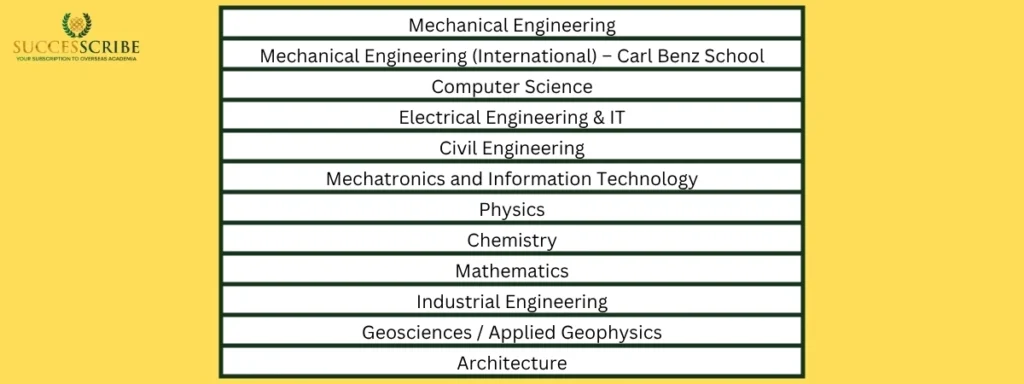
The Karlsruhe Institute of Technology (KIT) stands as a beacon of excellence in science, technology, and innovation. Its academic offerings, particularly in engineering and natural sciences, are globally recognized, with several programs consistently ranked among the Top 50 in the world. Whether you’re pursuing a Bachelor’s or Master’s degree, KIT provides a curriculum that blends theoretical foundation with cutting-edge research and real-world application.
Top Bachelor’s Degree Programs at KIT
At the undergraduate level, KIT offers an array of German-taught and English-taught bachelor’s programs. These programs are structured to provide strong fundamentals while introducing students to research and innovation early in their academic journey.
Popular Bachelor’s Programs (Taught in German unless specified)
| Program Name | Language | Duration | Notable Features |
| Mechanical Engineering | German | 6 semesters | Foundation for wide engineering fields |
| Mechanical Engineering (International) – Carl Benz School | English | 6 semesters | Global focus, small cohort, premium services |
| Computer Science | German | 6 semesters | Strong research and AI orientation |
| Electrical Engineering & IT | German | 6 semesters | Modern labs, industry integration |
| Civil Engineering | German | 6 semesters | Emphasis on sustainability & smart cities |
| Mechatronics and Information Technology | German | 6 semesters | Interdisciplinary, hands-on robotics |
| Physics | German | 6 semesters | Top 50 worldwide in subject rankings |
| Chemistry | German | 6 semesters | Focus on chemical and biochemical systems |
| Mathematics | German | 6 semesters | Strong emphasis on computational science |
| Industrial Engineering | German | 6 semesters | Engineering + economics hybrid |
| Geosciences / Applied Geophysics | German | 6 semesters | Unique geoscientific research environment |
| Architecture | German | 6–8 semesters | Combines design theory & sustainability |
Top Master’s Degree Programs at KIT
KIT’s Master’s programs are globally renowned, especially in areas like Engineering, Computer Science, Physics, and Energy. These programs offer advanced-level study, research immersion, and often include strong industry collaboration.
Many are taught in English, making KIT especially attractive for international graduate students.
| Program Name | Subject Area | Language of Instruction |
| M.Sc. Mechanical Engineering | Engineering | German |
| M.Sc. Electrical Engineering and Information Technology | Engineering & IT | German |
| M.Sc. Informatics (Computer Science) | Computer Science | English/German |
| M.Sc. Information Systems Engineering & Management (IEM) | Computer Science + Management | English |
| M.Sc. Financial Engineering | Finance & Technology | English |
| M.Sc. Optics & Photonics | Physics, Photonics | English |
| M.Sc. Energy Engineering and Management | Energy Systems & Management | English |
| M.Sc. Materials Science and Engineering | Materials Science | English |
| M.Sc. Geophysics | Earth Sciences | English/German |
| M.Sc. Water Science and Engineering | Environmental Engineering | English |
| M.Sc. Mathematics in Data Science | Mathematics & Data Science | English |
| M.Sc. Technology Entrepreneurship | Entrepreneurship & Innovation | English |
| M.Sc. Mobility Systems Engineering and Management | Automotive & Transportation Tech | English |
Suggested Post: Heidelberg University top courses
Tuition Fees & Semester Contributions at Karlsruhe Institute of Technology
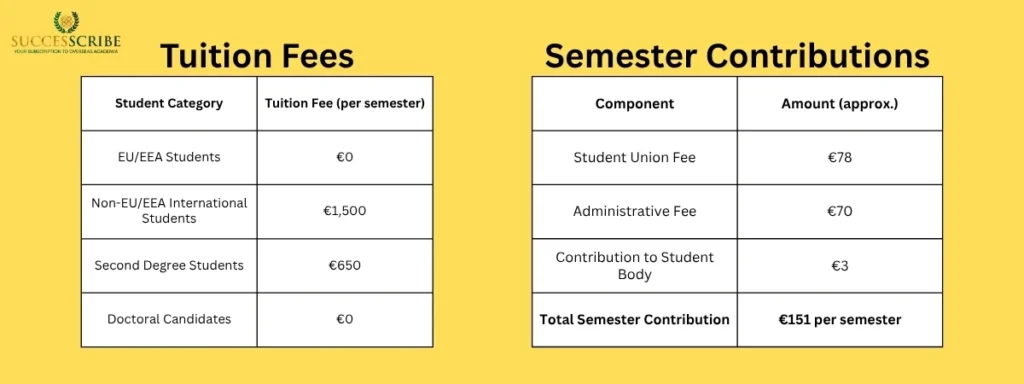
Karlsruhe Institute of Technology (KIT), being one of Germany’s premier public research universities, offers high-quality education at a very affordable cost, especially appealing to both domestic and international students.
Tuition Fees at KIT
One of the biggest advantages of studying at KIT is tuition-free education for most programs. Here’s a breakdown:
| Student Category | Tuition Fee (per semester) |
| EU/EEA Students | €0 |
| Non-EU/EEA International Students | €1,500 |
| Second Degree Students | €650 |
| Doctoral Candidates | €0 |
The €1,500 per semester tuition fee applies only to non-EU/EEA students pursuing a first-degree Bachelor’s or consecutive Master’s program in the state of Baden-Württemberg, where KIT is located. This policy was introduced in 2017.
Semester Contributions at KIT
All students, regardless of nationality, are required to pay a semester contribution, which supports student services, administration, and public transport.
| Component | Amount (approx.) |
| Student Union Fee | €78 |
| Administrative Fee | €70 |
| Contribution to Student Body | €3 |
| Total Semester Contribution | €151 per semester |
Suggested Post: University of Hamburg application deadline
Faculties & Academic Structure at Karlsruhe Institute of Technology (KIT)
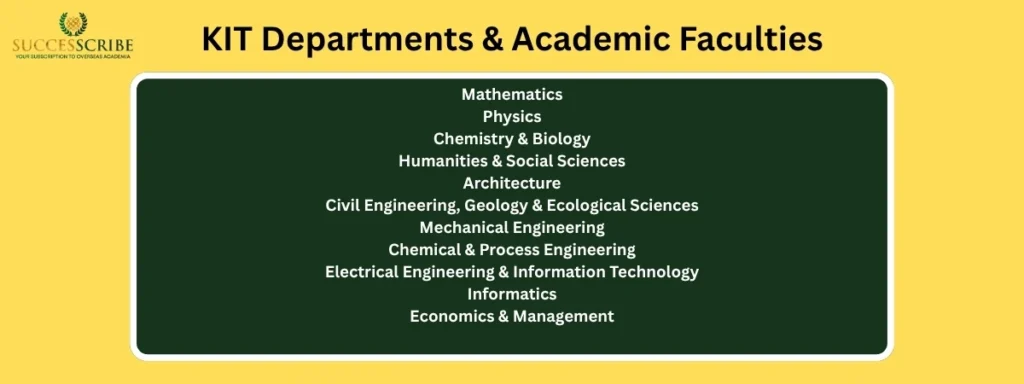
KIT operates with a dual identity, a merger of Germany’s oldest technical university and a Helmholtz research institute, organized to seamlessly combine teaching, research, and applied innovation. Its governance and academic structure reflect this unique synergy.
Organizational Governance & Divisions
KIT is governed under the KIT Act (KITG) and organized through five strategic divisions that align teaching, research institutes, and innovation initiatives:
- Division I – Biology, Chemistry & Process Engineering
- Division II – Informatics, Economics & Society
- Division III – Mechanical & Electrical Engineering
- Division IV – Natural & Built Environment
- Division V – Physics & Mathematics
Each division is led by a head and council, who coordinate research institutes and KIT Departments within their domain
KIT Departments & Academic Faculties
University teaching and curricula are managed via eleven faculties, each headed by a Dean reporting to KIT’s Vice-President for Higher Education and Academic Affairs. These faculties provide academic leadership across disciplines.
- Mathematics
- Physics
- Chemistry & Biology
- Humanities & Social Sciences
- Architecture
- Civil Engineering, Geology & Ecological Sciences
- Mechanical Engineering
- Chemical & Process Engineering
- Electrical Engineering & Information Technology
- Informatics
- Economics & Management
These faculties deliver undergraduate to doctoral degrees, working closely with KIT’s research institutes.
Research Institutes & KIT Centers
- KIT hosts 50+ research institutes that span disciplinary themes, from Astroparticle Physics to Applied Informatics, integrated within the Division and Department structure.
- Additionally, nine KIT Centers foster interdisciplinary collaboration on cross-cutting themes like energy, environment, and materials science.
- KIT is an active participant in the Helmholtz Association’s Program-Oriented Funding (PoF IV), operating large-scale facilities such as the Grid Computing Center Karlsruhe (GridKa)
Specialized & International Schools
In addition to the general faculties, KIT includes several special institutes and schools offering tailored programs and international engagement:
- Carl Benz School of Engineering (CBS)
Offers a fully English-taught Bachelor’s in Mechanical Engineering (International) designed for global students; features pre-semester support, housing, mentoring, and close faculty interaction
- HECTOR School of Engineering & Management
Provides professional master’s degrees in fields like Energy Engineering & Management, Mobility Systems, Production & Operations, Financial Engineering, and Information Systems Engineering, designed in collaboration with industry for working professionals.
- Karlsruhe School of Optics & Photonics (KSOP)
Established under Germany’s Excellence Initiative, KSOP offers a high-profile international MSc program in photonics with Erasmus Mundus partnerships and PhD tracks.
- Institute for Technology Assessment & Systems Analysis (ITAS)
A Helmholtz research facility that evaluates techno-social systems, policy impact, and ethical implications of emerging technologies. It advises the German Bundestag and supports systemic decision-making.
| Governance Structure | Academic Authority |
| KIT Executive Board | University strategy |
| KIT Senate & Supervisory Board | Policy oversight |
| Five Research Divisions | Lead domain coordination |
| Eleven Academic Faculties | Deliver degree programs |
| Research Institutes | Conduct discipline research |
| KIT Centers & Special Schools | Enhance interdisciplinarity and international reach |
KIT’s academic system brings together structured faculty-based teaching and interdisciplinary, research-driven innovation, creating a uniquely integrated and modern university environment.
Suggested Post: University of Freiburg tuition fees
Career Prospects & Placements at Karlsruhe Institute of Technology (KIT)
KIT offers a strong bridge between cutting-edge education and thriving careers. Whether you’re in undergraduate or graduate study, KIT’s ecosystem is designed for early exposure to industry, entrepreneurial opportunities, and strategic support, all driving international employability.
| Category | Details |
| Overall Graduate Employment Rate | 90% within 6 months of graduation (varies by discipline |
| Top Hiring Sectors | Engineering, IT, Automotive, Consulting, Research & Development |
| Popular Employers | Bosch, Daimler, BMW, SAP, Siemens, IBM, Amazon, Intel, Fraunhofer Institutes |
| Engineering Graduates | High demand in mechanical, electrical, and civil fields |
| Computer Science Graduates | Employed in AI, cybersecurity, data science, and software engineering roles |
| Natural Sciences Graduates | Often pursue research, PhDs, or work in pharmaceuticals and energy sectors |
| Management/Industrial Engineering | Employed in operations, supply chain, consulting, and business analysis |
| Average Salary for Graduates | €50,000–€70,000 annually (entry-level) |
| Research Career Opportunities | KIT cooperates with Helmholtz Association and EU research projects |
| Entrepreneurship Support | Innovation & Entrepreneurship Programs via KIT-Gründerschmiede |
| Internships | Strong industry ties allow placements with companies like Bosch, SAP, etc. |
| Career Services | KIT Career Service provides resume help, career fairs, and interview prep |
| Alumni Network | Global network offering mentoring, networking, and job referrals |
Suggested Post: Free University of Berlin Scholarships
Scholarships & Funding Opportunities at KIT
Studying at KIT is highly affordable, especially for EU students, as tuition is heavily subsidized or free. However, KIT and its partners also offer a variety of scholarships, grants, and financial support to further ease the study experience for both bachelor’s/master’s students and doctoral researchers.
| Scholarship / Funding | Target Group | Monthly/Annual Value | Remarks & Deadlines |
| Deutschlandstipendium | Undergrad & master students | €300/month for 1 year | Apply via KIT in April; 345 slots/year |
| KSOP Scholarship | M.Sc. Optics & Photonics students | €400/month + possible research work | Apply by mid-June; top 5% requirement |
| Landesgraduiertenförderung (Doctoral) | PhD candidates | Full doctoral funding | Available via structured PhD programmes |
| Bayer Foundation Scholarships (Jeff Schell, Otto Bayer) | Young researchers in sciences | Up to €20,000/year | Apply by mid-April; project proposal required |
| IBM PhD Fellowship & similar | Doctoral candidates in CS/tech | Multi-year stipend + benefits | Apply via KHYS; deadline around May |
| DAAD & International Scholarships | Exchange/mobility/postgrad students | Varies (stipend + tuition support) | Contact DAAD rep or KIT Intl Office |
| KIT Foundation / Hertz Society | Students with special need | Short-term aid (varies) | Apply anytime; aimed at crisis situations |
Career Prospects & Placements at Karlsruhe Institute of Technology (KIT)
Karlsruhe Institute of Technology (KIT) is recognized as one of Germany’s foremost research universities, blending academic excellence with practical, career-focused education. As a result, graduates from KIT are highly sought-after in the global job market, particularly in sectors such as engineering, IT, natural sciences, and energy.
Graduate Employability
KIT consistently ranks among the top German universities for employability. According to the QS Graduate Employability Rankings and internal KIT surveys:
- Over 90% of KIT graduates find employment within six months of completing their studies.
- KIT alumni are employed in more than 100 countries, reflecting the international recognition of its degrees.
Top Hiring Industries
Thanks to its strong technical and interdisciplinary curriculum, KIT graduates enter diverse high-demand sectors:
- Engineering & Automotive: Companies like Bosch, Daimler, BMW, Continental, and Porsche regularly hire KIT engineers.
- Information Technology & Software: Graduates in computer science and IT work at top firms such as SAP, IBM, Intel, and Amazon.
- Energy & Environment: KIT’s research in renewable energy and sustainability leads to placements in E.ON, EnBW, and other green tech companies.
- Finance & Consulting: Alumni are recruited by PwC, EY, Accenture, and McKinsey for technical consulting roles.
- Academia & Research: Many students pursue PhDs or research positions at institutes such as Helmholtz Association or Fraunhofer Institutes.
Internship & Co-op Opportunities
KIT has strong ties with German and international industry partners:
- Mandatory internships are integrated into several study programs.
- Students have access to companies in Baden-Württemberg, Germany’s most industrialized state, through campus career fairs and industry projects.
- Co-op programs allow students to work part-time in their field during their studies, gaining hands-on experience.
Support Services
KIT’s Career Service Center plays an active role in student employability:
- Offers individual career coaching, CV/resume support, and job interview preparation.
- Hosts regular career fairs, workshops, and employer networking events.
- Maintains a job portal for students and recent graduates.
Startup & Entrepreneurial Support
Through the KIT-Gründerschmiede (KIT Founders’ Forge), the university supports students with innovative ideas:
- Access to startup incubation, funding advice, and mentorship.
- Collaboration with the German Federal Ministry for Economic Affairs and Climate Action for entrepreneurship grants.
Typical Graduate Salaries
- Engineering Graduates: €50,000 – €70,000 per year (entry-level)
- IT & Computer Science: €55,000: €75,000 per year
- Management & Industrial Engineering: €55,000 – €65,000
- Research/PhD Positions: €45,000 with funding opportunities
Suggested Post: Ludwig Maximilian university of Munich Top courses
Campus Life & Student Experience at KIT
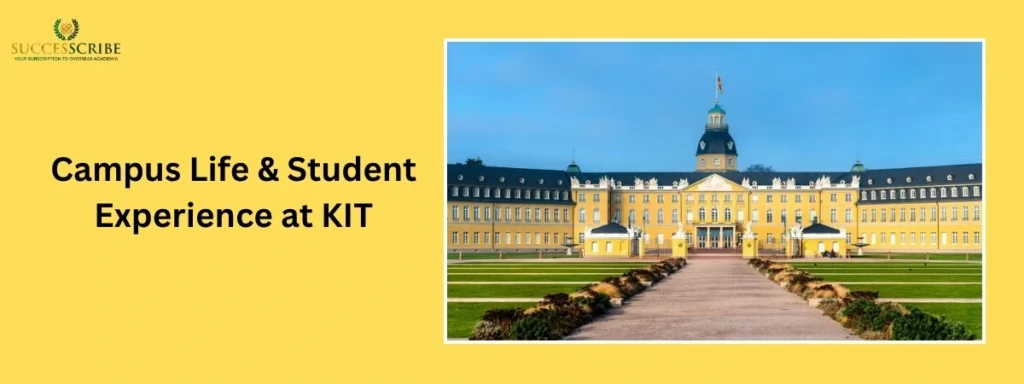
Studying at KIT is more than just academic rigor; it’s a vibrant, holistic student experience that blends cutting-edge research, cultural diversity, and personal growth. Nestled in the heart of Karlsruhe, a city known for its innovation and green spaces, KIT offers a dynamic and welcoming environment for both domestic and international students.
A Multicultural Community
With over 25,000 students from more than 120 countries, KIT promotes a truly international atmosphere. Students are encouraged to collaborate across cultures and disciplines through group projects, research initiatives, and intercultural events.
Student Organizations & Activities
More than 100 student-run clubs and initiatives thrive on campus, including robotics teams, music and drama groups, sustainability clubs, debate societies, and entrepreneurship circles. Popular events include:
- KIT Science Week
- EUCOR – The European Campus Events
- International Days and Language Cafés
Sports & Recreation
The Institute for Sports and Sports Science offers over 60 types of recreational activities, from swimming and basketball to yoga and fencing. The annual KIT Sports Festival draws participants from universities all over Europe.
Campus Facilities
- Modern libraries, open 24/7 during exams
- State-of-the-art labs and maker spaces
- Affordable dining in Mensa cafeterias
- Well-connected public transport (student semester ticket included)
Support for International Students
The International Students Office (IStO) provides:
- Pre-arrival guidance
- Visa and residence permit help
- Buddy programs and orientation weeks
- German language support classes
Suggested Post: Scholarships for undergraduates in Germany
Application Deadlines at KIT
Karlsruhe Institute of Technology follows a semester-based academic calendar with distinct application timelines for summer and winter intakes. International students are advised to apply well in advance to accommodate visa processing and document evaluations.
| Intake | Application Deadline (EU Students) | Application Deadline (Non-EU Students) | Semester Begins |
| Winter Semester (Oct–Mar) | 15 July | 15 July | 1 October |
| Summer Semester (Apr–Sep) | 15 January | 15 January | 1 April |
Notable Alumni of Karlsruhe Institute of Technology (KIT)
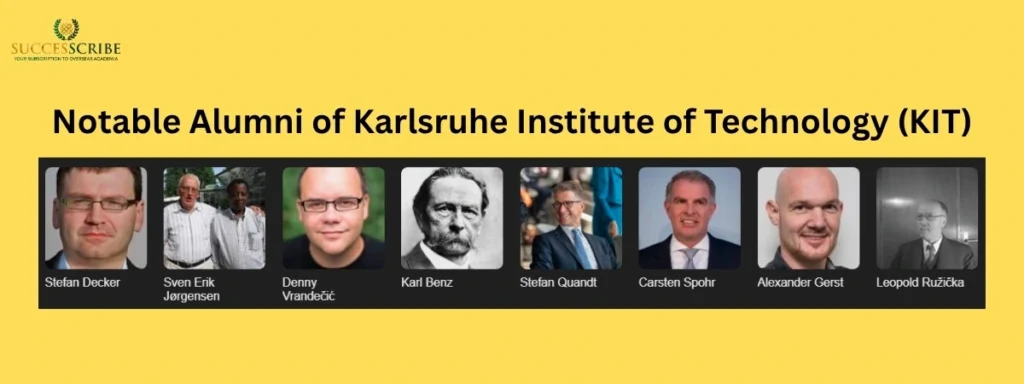
KIT’s legacy is enriched by its influential alumni who have left their mark on science, industry, politics, and innovation. Here are just a few distinguished names:
| Name | Field | Known For |
| Karl Benz | Automotive Engineering | Inventor of the modern automobile; founder of Mercedes-Benz |
| Heinrich Hertz | Physics | Pioneer in electromagnetic wave research; unit “Hertz” named after him |
| Hans Albrecht Bethe | Theoretical Physics | Nobel Laureate in Physics (1967) |
| Roland Mack | Mechanical Engineering | Founder of Europa-Park, one of Europe’s largest theme parks |
| Henning Kagermann | Business & Technology | Former CEO of SAP, one of the world’s top enterprise software firms |
| Michael Groß | Political Science | German politician, member of the Bundestag |
| Anja Karliczek | Public Policy | Former Federal Minister of Education and Research of Germany |
| Christiane Nüsslein-Volhard | Biology | Nobel Prize Winner in Physiology or Medicine (1995), affiliated with KIT |
Conclusion
Karlsruhe Institute of Technology (KIT) is not just a place of study; it’s a powerhouse of innovation and global impact. With over 22,000 students, 9 faculties, and more than 100 degree programs, KIT combines world-class research with top-tier education. From securing a spot among the top 100 universities globally in engineering and technology to producing 11 Nobel laureates and countless industry pioneers, KIT has built a legacy of excellence that continues to shape the future.
Whether you’re aiming for a breakthrough in AI, sustainability, or robotics, KIT offers the perfect launchpad. With cutting-edge facilities, global collaborations, and strong industry ties, your journey at KIT doesn’t just end with a degree. It begins with a revolution.
FAQs
Is Karlsruhe Institute of Technology (KIT) a public or private university?
KIT is a public research university in Germany, funded by the state of Baden-Württemberg and known for its high-quality, tuition-free education for EU and most non-EU students.
What is the global ranking of KIT in 2025?
As of 2025, KIT ranks among the top 100 globally for engineering and natural sciences (QS World Rankings & THE), and is one of Germany’s top 5 technical universities (TUs).
What is the acceptance rate at KIT?
The acceptance rate is estimated at 25–30% for most competitive programs, especially in fields like Computer Science, Mechanical Engineering, and Data Science.
What are the tuition fees and semester costs at KIT?
While tuition is free for EU/EEA students, non-EU students pay €1,500 per semester. All students must pay a semester contribution of approx. €167–€188, which covers administration and public transportation.
What career opportunities are available after graduating from KIT?
Graduates have a 94% employment rate within 6 months, with roles at companies like Bosch, Siemens, SAP, Mercedes-Benz, BASF, and Amazon. KIT also hosts career fairs and provides strong industry internships and research positions.
Suggested Post
Part time jobs in Germany for students
Dental hygienist course in Germany
Top universities for masters in Germany
Admission Requirements for masters in Germany


